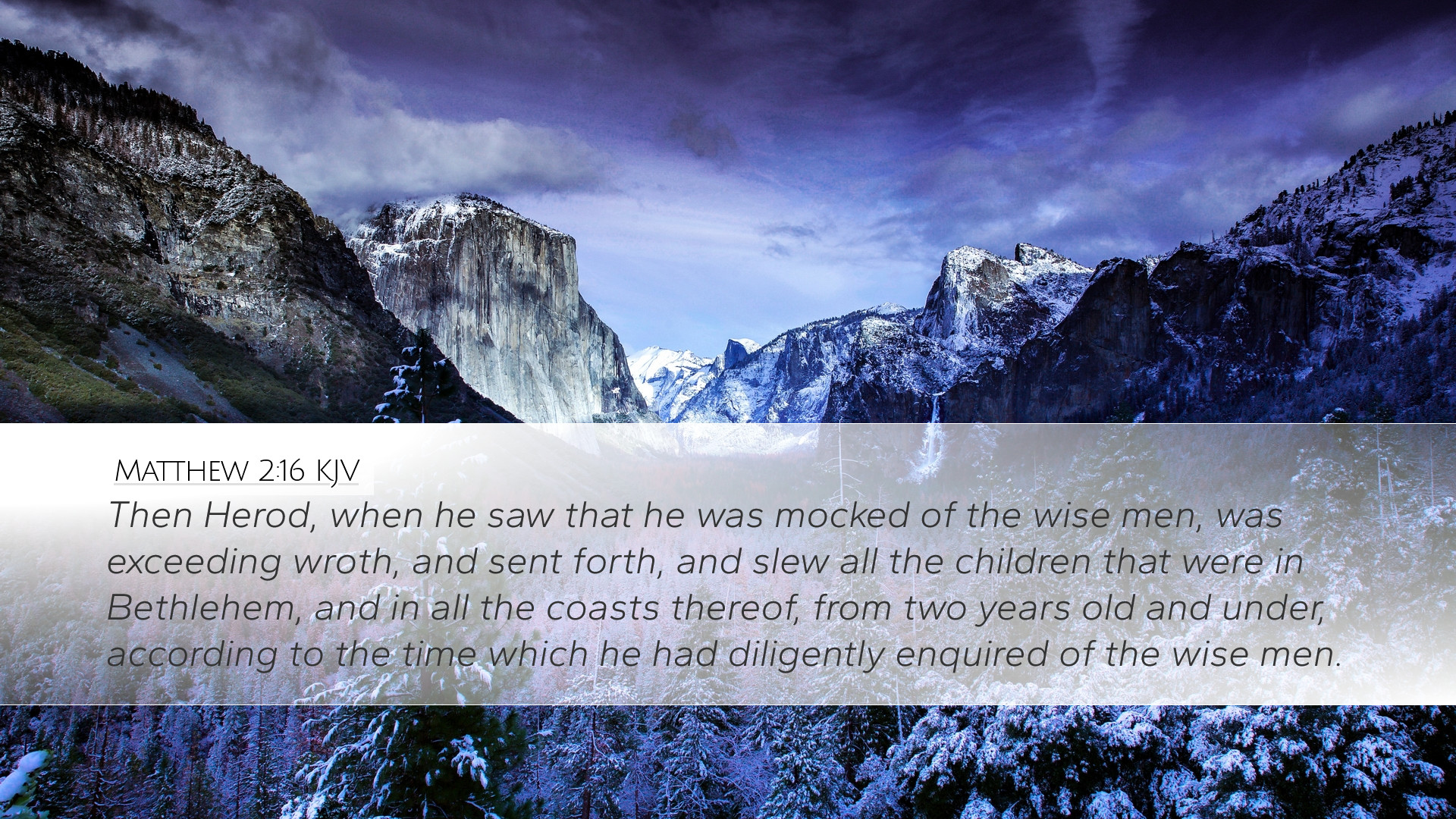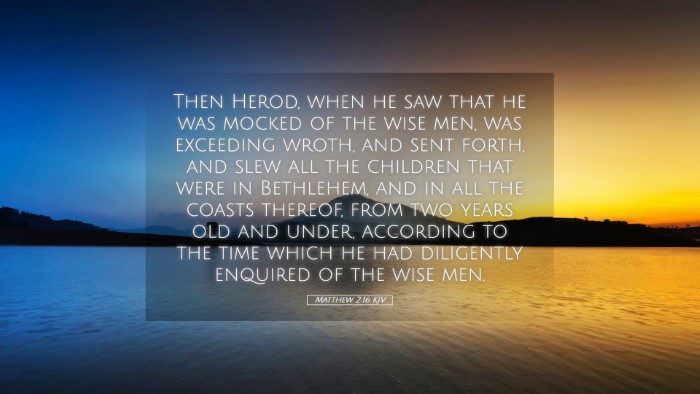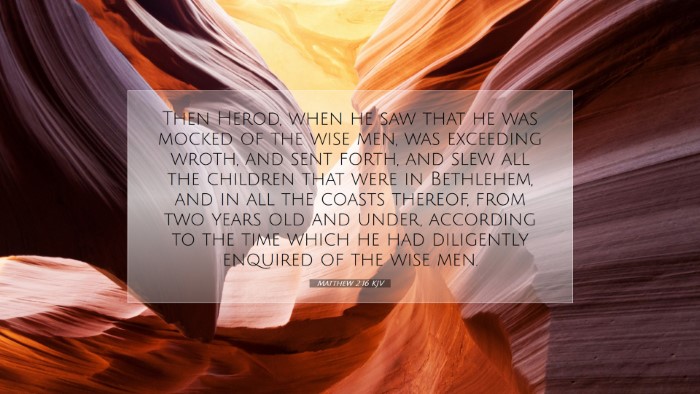Commentary on Matthew 2:16
Verse Text: "Then Herod, when he saw that he was mocked of the wise men, was exceeding wroth, and sent forth, and slew all the children that were in Bethlehem, and in all the coasts thereof, from two years old and under, according to the time which he had diligently inquired of the wise men." (Matthew 2:16)
Introduction
This verse presents one of the most tragic episodes in the early narrative of the New Testament. The massacre of innocent children serves as a grim backdrop to the nativity story. Pastoral insight demands a reflection on both the historical context and its theological implications.
Historical Context
Matthew Henry emphasizes the historical significance of this verse, noting that King Herod was known for his cruelty and paranoia in maintaining his throne. His actions against the children of Bethlehem highlight not only his character but also the fulfillment of prophecy.
Albert Barnes corroborates this, pointing out that Herod's actions were driven by a fear of losing power to the prophesied "King of the Jews" and that this event echoes the prophetic word found in Jeremiah 31:15, which speaks of Rachel weeping for her children.
Theological Insights
The massacre of the innocents raises difficult questions about God's providence and human suffering. Adam Clarke provides insight into God's overarching plans amidst human wickedness. He points out that God allowed this suffering as part of the larger narrative that culminates in the salvation of humanity through Christ.
Henry highlights the contrast between Herod's brutal pursuit of power and the silent obedience of the Holy Family. This contrast serves to remind readers that God's purposes often unfold through suffering and humility.
Moreover, the slaughter of the innocents serves as a prelude to the themes of suffering and sacrifice that permeate the Gospel. It foreshadows the ultimate sacrifice of Christ, suggesting that great evil often accompanies divine good.
Pastoral Application
For pastors and church leaders, this verse serves as a stark reminder of the realities of evil in the world. The act of Herod can be seen as a manifestation of systemic injustice and the lengths to which those in power will go to maintain control.
Clarke advises that the church must respond with compassion in the face of suffering, echoing the lamentation present in this narrative. It calls for a commitment to care for the vulnerable and marginalized in society, mirroring Jesus' mission of love and protection.
Henry discusses the call to vigilance, urging believers to remain aware of spiritual deceit that may come from within and without the church. He posits that we must strive to be like the wise men, discerning and guided by divine revelation in our decision-making.
Conclusion
Matthew 2:16 is a sobering reminder of the intersection of prophecy, power, and human action. The commentary from Henry, Barnes, and Clarke collectively urges an understanding of this event not merely as a historical occurrence but as a profound teaching on the nature of evil, the heart of God, and the complexity of divine providence.
The implications for theology, especially concerning the nature of Christ's mission amid suffering, are critical for both scholarly study and practical ministry. In the face of despair, believers are called to hold fast to the hope and light that Jesus brings into a world often eclipsed by darkness.


